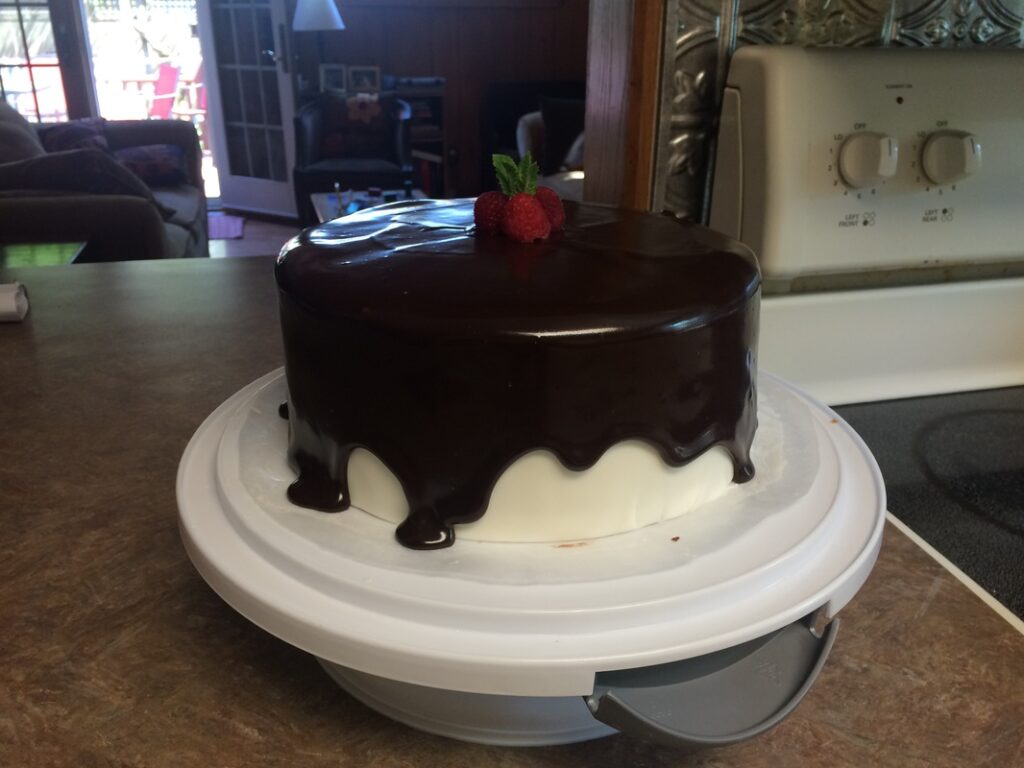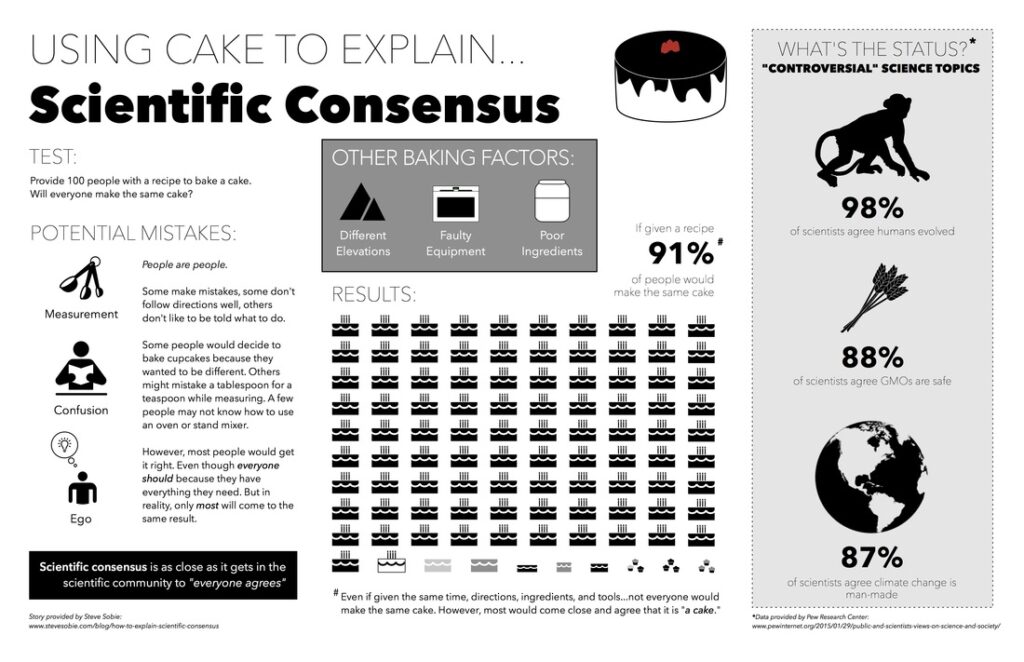
I recently gave a presentation on how to talk science to normal people. After I finished there was the usual question and answer. One of the audience asked me a fairly simple question, which I sadly fumbled. “How do you explain scientific consensus to someone who doesn’t agree?” I don’t remember the rambling answer I gave at the time, but the question has been stuck with me ever since. I finally came up with what I think is a pretty decent answer and it involves cake.
The first thing a scientist needs to decide when explaining scientific consensus is whether it is truly “science” or “scientific consensus” that is being questioned. If a person doesn’t believe in science because it conflicts with their faith…no amount of explanation is going to persuade that individual. Faith is the belief in something without evidence. Science is knowledge gained through studying evidence. They are diametrically opposed. Antonyms, if you will. No single conversation will cause someone to lose their faith. But if the question is genuinely, “how do you explain scientific consensus?” then that can be described thusly…
Time to talk cake.

Let’s say I had a kick ass recipe for a marble cake and handed it to 100 people and asked them to bake me a cake. I gave them all the tools, time, ingredients, and anything else they needed. Do you think you would get 100 identical cakes that looked and tasted the same? No. People are people. Some make mistakes, some don’t follow directions well, others don’t like to be told what to do. I would imagine some of the people would decide to make cupcakes because they wanted to be different. Others might mistake a tablespoon for teaspoon, which would have a huge effect on the quality of the cake. Others may not know how to work the oven or mixer and the cake will not come out the same. But all told, say 91 of the 100 people were able to follow the directions, know how to work the equipment, and then follow through to produce a successful cake. Although the directions were good and the thing they were trying the make was the same, only 91% made the same cake. In scientific terms, that’s a consensus.
When scientists are trying to answer a question or figure something out like climate change (i.e., the cake in this analogy), there are some pretty straightforward ways of looking at it. However, even if someone has put out a method for determining the cause of climate change (i.e., the directions), there will still be some people who come up with something different because its in their personality to want to stand out (i.e., cupcakes). Others may screw up something (i.e., wrong measurements). But generally, you will see a pretty sizable amount of success. You will get most people to reproduce what they are supposed be seeing or making and that number will be large. As in most people. Not unanimous. But most…or a consensus.
Make sense?
Scientists are human. They may be incredibly precise, and frankly, kind of weird, but they don’t just make stuff up. They need evidence. Otherwise, its not science and they are not scientists.
So that’s my story. Scientific consensus is the closest thing you have to “everyone agrees” in the scientific community. And, just as with baking, you don’t have to be a professional baker (i.e., scientist) to come to the same conclusions if you are provided the same equipment and directions (i.e., methods). The results will be the same…you have cake.
Oh yeah, and here’s a what you need to make that marble cake.
Marble Cake Recipe (Joy of Cooking)
- 5 ounces (140 grams) bittersweet or semisweet chocolate, chopped
- 1 tablespoon brewed coffee (optional)
- 2 1/4 cups (295 grams) all purpose flour
- 2 1/2 teaspoons baking powder
- 1/4 teaspoon baking soda
- 1/2 teaspoon salt
- 3/4 cup (170 grams) unsalted butter, room temperature
- 1 1/4 cups (250 grams) granulated white sugar
- 3 large eggs, room temperature
- 1 1/2 teaspoons pure vanilla extract
- 1/3 cup (80 ml) sour cream or plain yogurt, room temperature
- 1/2 cup (120 ml) milk, room temperature



Leave a Reply